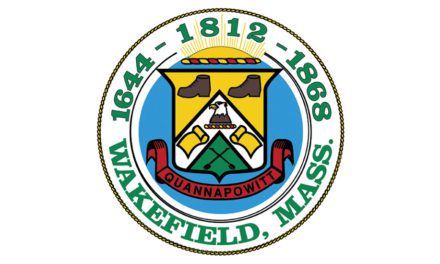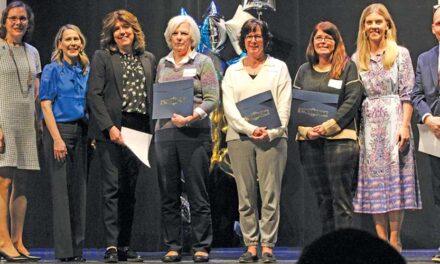By MARK SARDELLA
If the sudden urgency to eliminate the Wakefield Warrior logo last spring after 75 years struck you as curious, perhaps it shouldn’t have come as such a surprise.
In retrospect, you wouldn’t have to be a conspiracy theorist to conclude that the logo’s elimination was merely setting the stage for something bigger, like the local implementation of the latest trend to grip the education community, “culturally responsive teaching.”
At its last meeting in June, the School Committee heard about the administration’s plans to establish an “Indigenous Curriculum” at all levels and across all subject areas when school returns in the fall. The move is rooted in a resolution issued last April after the School Committee voted to eliminate the Wakefield High School logo, which for decades had consisted of an image of a Native American in a headdress.
The resolution included the following groveling apology for the grievous sin of using an image of a Native American warrior: “The Wakefield School Committee apologizes on behalf of the Wakefield Public Schools to its Native American students and to Indigenous peoples across Massachusetts and beyond for any harm that its use of Native American imagery may have caused.”
The confession of any sin comes with a penance, and the resolution deemed that the Wakefield School Department must assemble a curriculum task force “of qualified Wakefield Public Schools educators, consultant historians and Native American education advisers to develop recommendations to strengthen the Wakefield Public Schools K-12 curriculum to more accurately reflect Native American history, culture, voice and the contributions of Indigenous peoples connected to Wakefield.”
Among the “consultant historian advisers” that Wakefield educational leaders contacted for guidance was Mishy Lesser, founder of the “Upstander Project” and “Upstander Academy.” At the June 22 School Committee meeting, it was announced that several local curriculum directors would be attending “Upstander Academy” this summer in order to learn how to incorporate its core guiding principles into the Wakefield school curriculum.
One of those “core guiding principles” holds that “Settler colonialism exists on stolen land and uses many forms of violence to maintain control, including the attempted erasure of Indigenous people.”
Hopefully your young colonizers will be suitably chastened as they learn about the crimes against humanity for which they are responsible.
But not to worry. Another “core guiding principle” of Upstander Academy states that “Non-Native people who benefit from a system that preys on Indigenous people and the land need to heal from their roles as perpetrators and deniers. The unearned sense of superiority that White people are socialized into can feed white supremacist ideology.”
So, telling students that they are colonizers, perpetrators, deniers and potential white supremicists is apparently a recipe for healing, according the program that several Wakefield teacher leaders are attending this summer. The Upstander Academy website states explicitly that participants are expected to “practice and model the skills of upstanders in their classrooms, museums, and communities.”
As another way to atone for Wakefield’s sins, the schools plan to bring in Jemilah Pitts, an education consultant and “equity and inclusion strategist” to conduct professional development sessions to train teachers and administrators in “culturally responsive teaching.”
According to American University School of Education, “Culturally responsive teaching is not a secondary or supplemental approach to education. Instead, every learning opportunity and school activity should take the ancestral and contemporary cultures, beliefs and traditions of students into account.”
Say goodbye to America as a melting pot, where cultural differences meld together into a stronger, harmonious whole with a common culture. Say hello to culturally responsive teaching, which devalues our common American heritage in favor of what divides us.
Another feature of culturally responsive teaching is “empowering students,” according to American University.
“Authoritarian classrooms — where student behavior is restricted by a long list of strictly enforced rules — can be problematic.”
In other words, we mustn’t tell students what to do. Instead, just let the children run things. (To its credit, Wakefield has been on the cutting edge in this area with its omnipotent Youth Council).
According to American University, teachers should “allow students to have a say in what they learn by focusing lessons on topics they find interesting, allowing them to choose their own reading material and encouraging them to share thoughts and ideas in an open-minded, supportive environment.”
With culturally responsive teaching, who needs teachers?
Lately, parents across the country have been pushing back against what they see as a movement to incorporate a radical concept known as Critical Race Theory into their children’s education.
Educators, knowing how toxic it is, have universally denied that CRT is being taught in public schools. But they fully embrace culturally responsive teaching.
Does anyone know what the acronym for culturally responsive teaching is?




